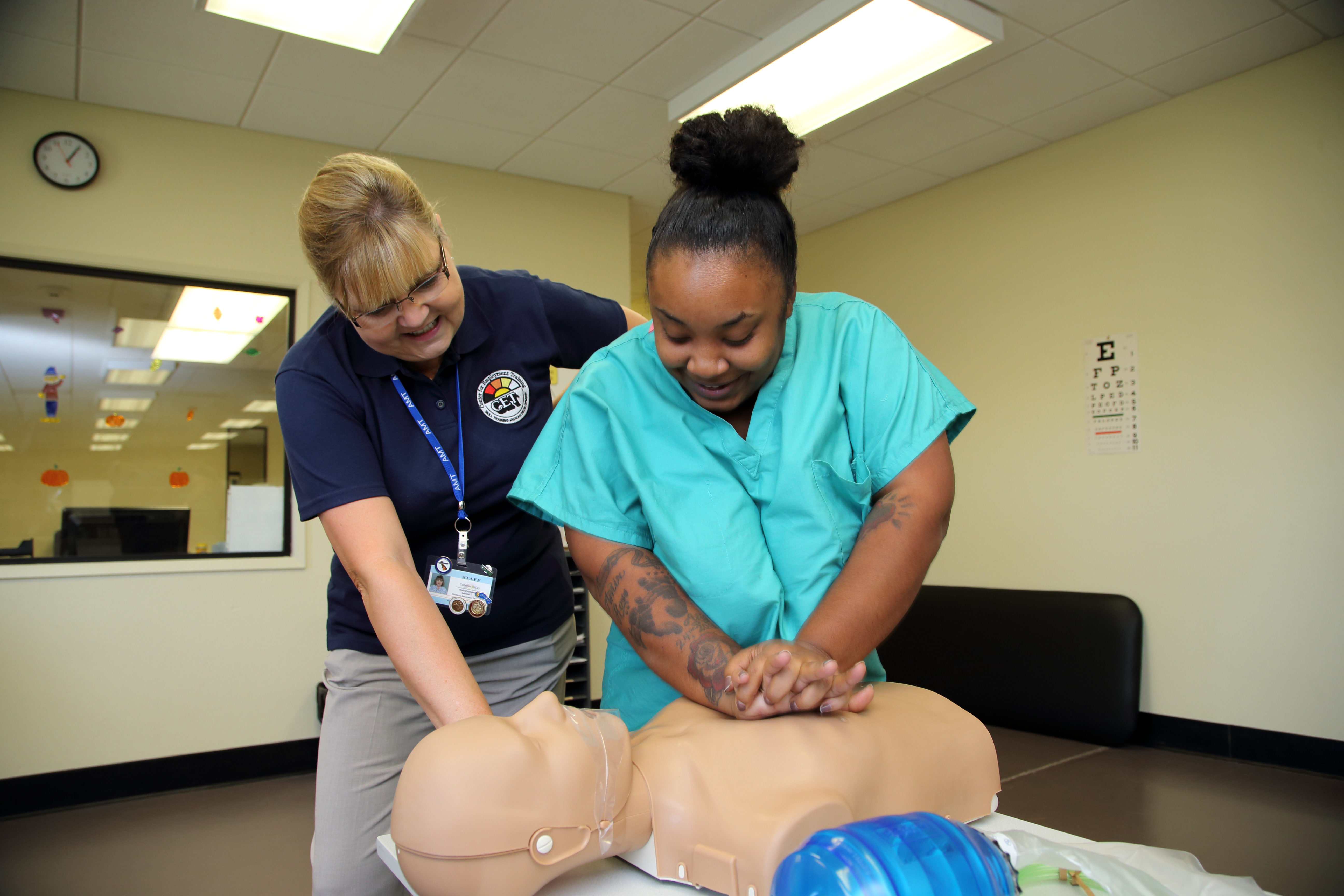Can You Take Classes While on Unemployment?
Unemployment benefits are a literal lifesaver, especially during a time of global crisis like the one we’re all currently going through. But there...
3 min read
 Amy Lawrence
:
Apr 13, 2020 9:00:00 PM
Amy Lawrence
:
Apr 13, 2020 9:00:00 PM

People wondering where to turn to find career opportunities can easily find inspiration in young minds. They may have fond memories of school from growing up, or they may feel the drive to nurture today’s youth to grow into the most accomplished generation yet.
Unfortunately, a lack of higher education is a huge barrier to those who want to seek a career in “lower” education. Nearly all teaching positions K-12 require master’s degrees and teaching certifications. The time and money it would take to reach that level is just too high of a hurdle for so many people.
The good news is that you can still follow your passion. It just requires seeking out jobs in schools other than teaching. There are many education jobs without a degree available; you just have to know where to look. Receiving training in something like early childhood teaching from a career education center can put you on the path to a salaried job working directly with enthusiastic young minds.
To inspire you to seek out jobs in schools other than teaching, consider the following six educations careers that don’t require a four-year or higher degree.
Schools, parents, and kids are looking for a more well-rounded education that can provide a wider range of skills. Kids are also looking for stimulation — some sort of hobby or passion that can point them towards a satisfying future career.
More and more often, these groups are finding the satisfaction they need in self-enrichment activities that lay outside the standard school education program. Classes in cooking, woodworking, reflective writing, sewing, pottery, and thousands of other possible disciplines can all help kids round out their skills and discover knowledge that can’t be found in a textbook.
These types of classes all fall under the umbrella of “self-enrichment education,” meaning lessons that teach kids how to do more with their hands and minds than they ever thought possible.
According to the Bureau of Labor Statistics, self-enrichment education teachers are in high demand, with a projected 15% increase in employment between 2014 and 2024.
Having an Associate’s degree or high school diploma/GED is often the minimum to apply. However, while some positions require specific degrees or certifications, others just require a set of skills and some passion.
Childcare workers work in daycare centers, after-school programs, and sometimes in people’s own homes.
Positions in this career field are usually way different from one another. While some positions may require a high amount of responsibilities, offer high wages, and allow you to tutor or teach lessons to children, others may just need you to supervise them while they play.
Be sure to review the job requirements, listed responsibilities, and pay arrangements carefully so that you can find a position that is rewarding in more ways than one.
There’s a world of knowledge inside each and every book. People who want to work closely with children and assist them in their education can turn to a job amongst the library stacks to find the career they want.
Becoming a library assistant often requires an Associate’s degree, and some libraries may require a certification.
The people who work in the front offices of schools, childcare centers, and other early education places play a bigger role in child development than most may realize. These are the people who check in parents and assist children when they have a problem. Helping keep the administration organized is also a critically important job.
Job requirements for administrative assistants at educational institutions can vary. If the job involves bookkeeping or other responsibilities beyond filing, then it may demand a four-year degree. However, some positions just require a high school diploma or GED.
Like self-enrichment teachers, recreation specialists help students become happier, healthier, and more well-rounded. These people often work as instructors or assistants in after school programs or in parks and other facilities that offer sports and recreation programs.
Just imagine teaching soccer, tennis, horseback riding, archery, or even just hiking in nature with a group of eager students. Some positions may require four-year degrees or certifications in sports education or kinesiology, whereas others just may require a high school diploma/GED and passion for staying active.
Of all the jobs on this list, this one arguably offers the closest things to actually helping educate children. Early childhood teaching assistants often work in actual preschools or early childhood education programs. They can assist with lessons, help organize activities, and sometimes provide one-on-one instruction to students.
The best training programs for early childhood teaching assistants, like the one offered at CET, provide hands-on experience working directly with children.
At CET, you’ll learn about the most important theories and philosophies of early teaching, how to develop education programs and materials, and what special considerations need to be taken around very young children. You’ll also learn about the administrative tasks needed to keep early childhood education programs afloat, as well as essential life-saving skills like CPR and safe handling of foods around children with allergies.
Becoming an early childhood teaching assistant is one of the most rewarding jobs you can achieve in education without needing a teacher’s certification or a four-year degree. Find out if the program is right for you when you contact us to schedule a call or visit CET’s campus in San Jose.

Unemployment benefits are a literal lifesaver, especially during a time of global crisis like the one we’re all currently going through. But there...

The tides of enrollment in trade schools and universities seem to be shifting. Rates of enrollment in traditional four-year colleges and technical...

Unemployment and trouble finding quality jobs are things anyone can struggle with but young people between 16 and 24 are particularly prone to...